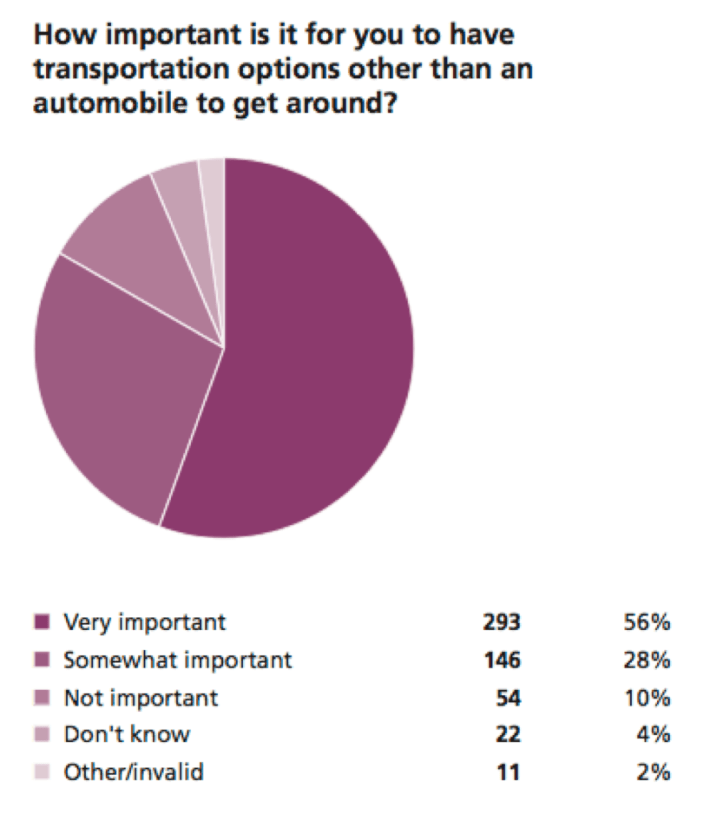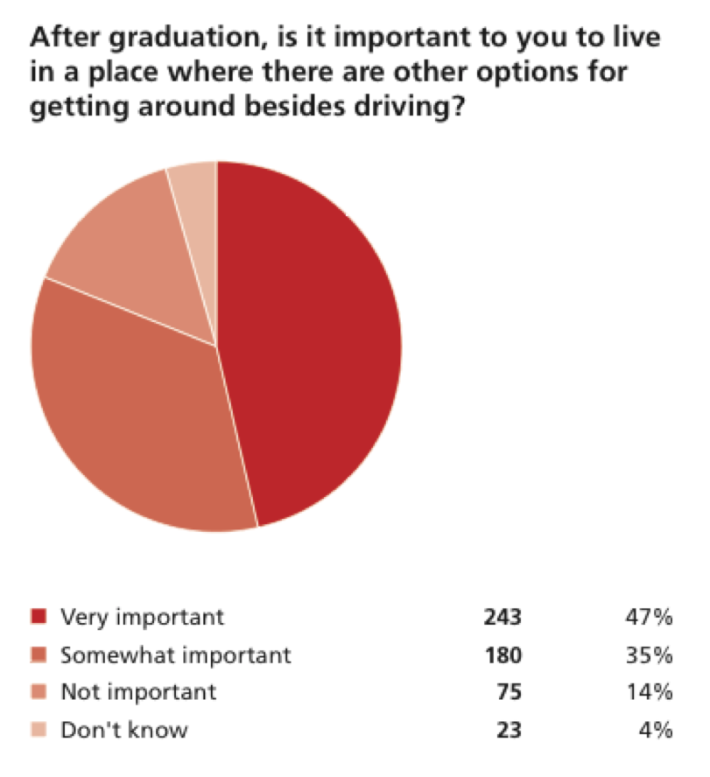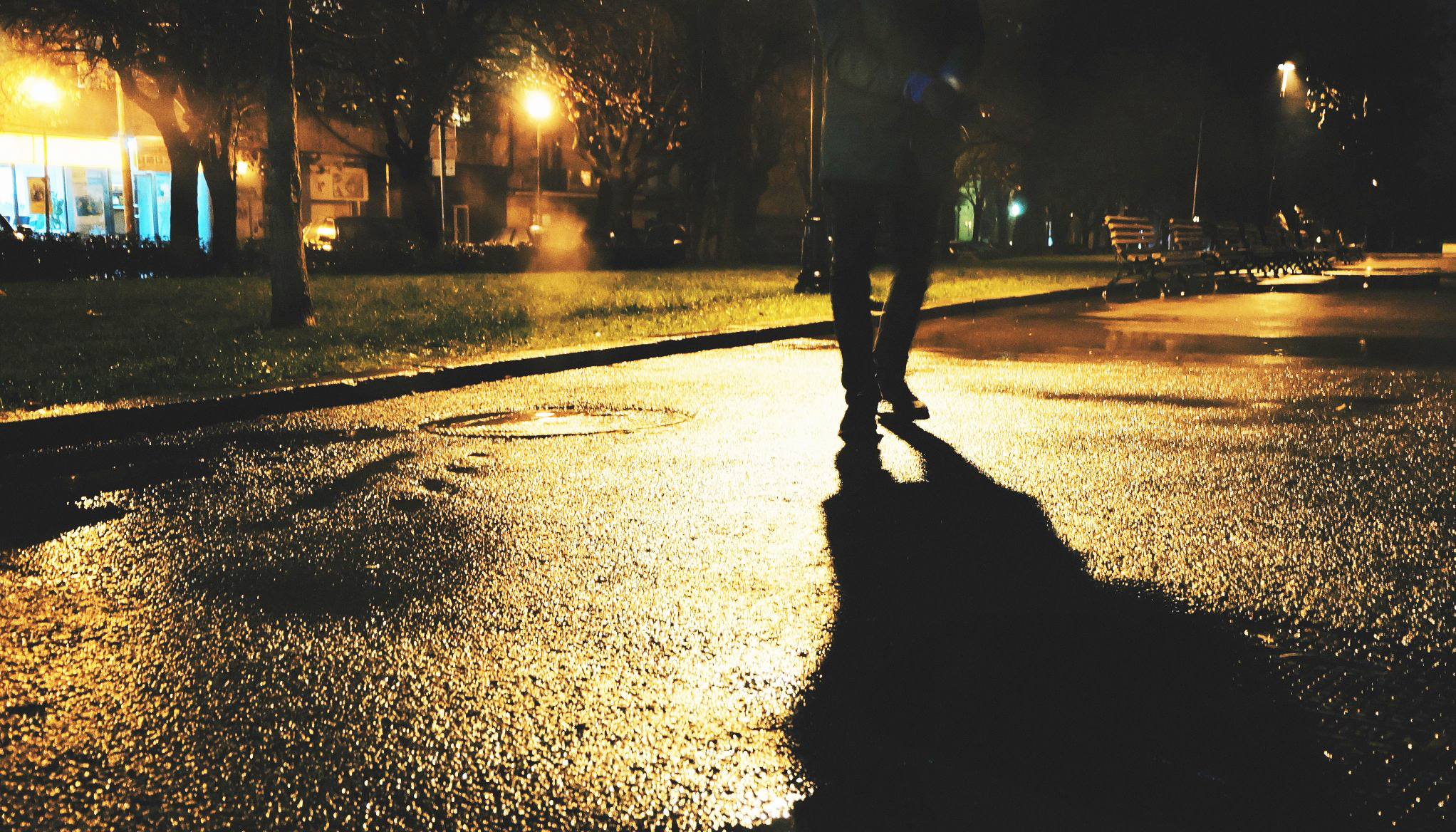Over-spending on roads is a bad idea for any state DOT. But it’s an especially bad idea if that state needs to retain more young people who don't want to be shackled to cars.

That’s the situation Wisconsin finds itself in, as detailed in a report the WISPIRG Foundation released today called, "Driving Wisconsin's 'Brain Drain': How Outdated Transportation Policies Undermine Wisconsin's Ability to Attract and Retain Young Talent for Tomorrow's Economic Prosperity."
“Policy makers and the public need to be aware that state and federal transportation policy -- dominated by road-building -- are fundamentally out-of-step with the transportation patterns and expressed preferences of growing numbers of students and young professionals in Wisconsin,” wrote WISPIRG Director Bruce Speight. “It is poor transportation policy and poor economic development.”
In a non-scientific survey of 530 college students in the state, conducted both online and on campuses, 47 percent of respondents told WISPIRG that having transportation options other than driving is “very important” to them when they think about where they’ll live after graduation. An additional 35 percent said it was “somewhat important.” Sixty percent said they’d be at least “somewhat more likely” to stay in Wisconsin after graduation if they could get around without driving.
The survey results echo those from a Rockefeller Foundation/Transportation for America study, released last month, which found that four in five respondents wanted to live in a city where they could get around without a car and two-thirds said access to high-quality transportation was one of their top three criteria for choosing a place to live.
Speight says state policymakers have ignored the needs and desires of the very people that Wisconsin should be trying to court.
Like the rest of the country, Wisconsinites are driving less than they used to. Total vehicles-miles-traveled peaked in 2004 after decades of steady growth. Meanwhile, transit and bicycling are on the rise. Madison’s transit ridership has risen in 12 of the last 13 years, Speight reports. In La Crosse, it’s almost doubled since 1997. And bike commuting has grown by 227 percent since 2000.
Meanwhile, the state keeps dropping lots of money on highway expansion. “Over the past fifteen years, total spending on major highway development in Wisconsin has increased by 90 percent,” Speight wrote. Especially wasteful, he says, are four new major highway projects the state recently approved, totaling at least $1.2 billion. Meanwhile, state transit funding has yet to recover from a 10 percent cut inflicted by legislators a few years ago.
Getting transportation policies in line with the preferences of the people could be a first step toward reversing "brain drain" in Wisconsin. The state's famous university system attracts tens of thousands of ambitious young people, but many leave the state after graduation. That’s a trend that needs to be reversed, argues the Wisconsin Policy Research Institute, which estimates the state needs to nearly triple its annual retention of young professionals to be competitive.
WISPIRG thinks the state needs to learn more about young people’s transportation preferences, reconsider highway expansion projects, and boost funding for transit and active modes.
After all, Speight warns, “Harvard economist Edward Glaeser has found that the presence of college graduates has been the best social or economic predictor of a city’s future growth in each of the last several decades.”
Research shows that the boost from college graduates is particularly pronounced in cold weather cities and those cities that have experienced some level of population decline. “In other words,” wrote Speight, “attracting and retaining young, educated talent is particularly important to a city like Milwaukee.”
While conventional wisdom used to hold that cities needed to attract businesses to attract people, that idea has been turned on its head in recent years. Young people increasingly choose where they want to live first and then look for jobs there. The new mantra is that cities first need to become a place where talented people want to live and employers will follow. So Wisconsin's cities need to start building the kind of infrastructure those talented people are looking for -- and it's not mega-highways.






